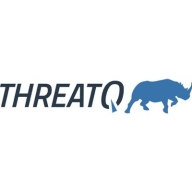

ThreatQ and VirusTotal are both prominent solutions in the threat intelligence market. VirusTotal seems to have the upper hand in feature set satisfaction while ThreatQ is notable for integration capabilities.
What features are offered by ThreatQ in comparison to VirusTotal?ThreatQ is highly valued for its advanced threat data management, comprehensive integration capabilities, and excellent organizational threat management. VirusTotal is appreciated for its extensive malware detection, analysis capabilities, and ability to aggregate data from multiple antivirus engines. Users find VirusTotal to be feature-rich.
What areas of improvement can be found in ThreatQ in comparison to VirusTotal?ThreatQ users suggest enhancements in automation, UI customization, and user experience. VirusTotal users seek improved file size limitations, more detailed reporting, and better scalability. Despite these needs, both products show strong performance.
How is the ease of deployment and customer service of ThreatQ in comparison to VirusTotal?ThreatQ is reported to have a straightforward deployment process with excellent customer support. VirusTotal has a simple deployment model but receives mixed reviews on customer service. Users find ThreatQ easier to deploy with more reliable support.
What setup costs and ROI can be seen with ThreatQ in comparison to VirusTotal?ThreatQ is seen as a higher-investment product with a proportional return on investment due to its comprehensive threat management features. VirusTotal is generally considered cost-effective; however, some users feel it offers lower ROI compared to ThreatQ. Pricing is a critical factor, with ThreatQ perceived as more expensive but justified by its capabilities, while VirusTotal is favored for affordability.
| Product | Market Share (%) |
|---|---|
| VirusTotal | 3.9% |
| ThreatQ | 2.0% |
| Other | 94.1% |

| Company Size | Count |
|---|---|
| Small Business | 4 |
| Midsize Enterprise | 2 |
| Large Enterprise | 5 |
ThreatQ is a cybersecurity platform designed to enhance threat intelligence operations. It centralizes and manages threat data, allowing organizations to identify and respond to threats more efficiently.
ThreatQ is designed to empower security teams by personalizing threat intelligence and automation processes. It integrates with existing technologies, streamlining data collection and distribution. This promotes efficient detection, investigation, and response to security incidents, improving overall cybersecurity posture and resilience.
What are the key features of ThreatQ?ThreatQ is versatile in industries like finance and healthcare, where cybersecurity is crucial. It facilitates swift threat identification and risk management, essential for protecting sensitive data and complying with industry regulations. Its adaptability allows it to fit into diverse security architectures, making it a valuable asset across sectors.
VirusTotal provides a comprehensive digital security platform by leveraging a vast malware database. It integrates numerous antivirus scanners for robust malware and virus detection, offering valuable insights for threat intelligence and security analysis.
VirusTotal is widely used for malware analysis and cybersecurity investigations, relying on its extensive capabilities in file and IP analysis. It integrates seamlessly with various antivirus engines, ensuring detailed threat intelligence. The platform excels at performing automated reputation checks, gleaning insights from a robust community, and delivering comprehensive information on suspicious activities. With an API system, it facilitates deeper analysis and integration into existing security workflows.
What are the standout features of VirusTotal?In sectors like retail, FinTech, and GRC, VirusTotal is integrated into cybersecurity workflows to enhance incident response capabilities. It is invaluable for analyzing phishing websites, inspecting URLs, identifying compromised information, and generating alerts for specific threats. APIs enable deeper examination of suspicious activity, supporting comprehensive cybersecurity operations.
We monitor all Threat Intelligence Platforms (TIP) reviews to prevent fraudulent reviews and keep review quality high. We do not post reviews by company employees or direct competitors. We validate each review for authenticity via cross-reference with LinkedIn, and personal follow-up with the reviewer when necessary.